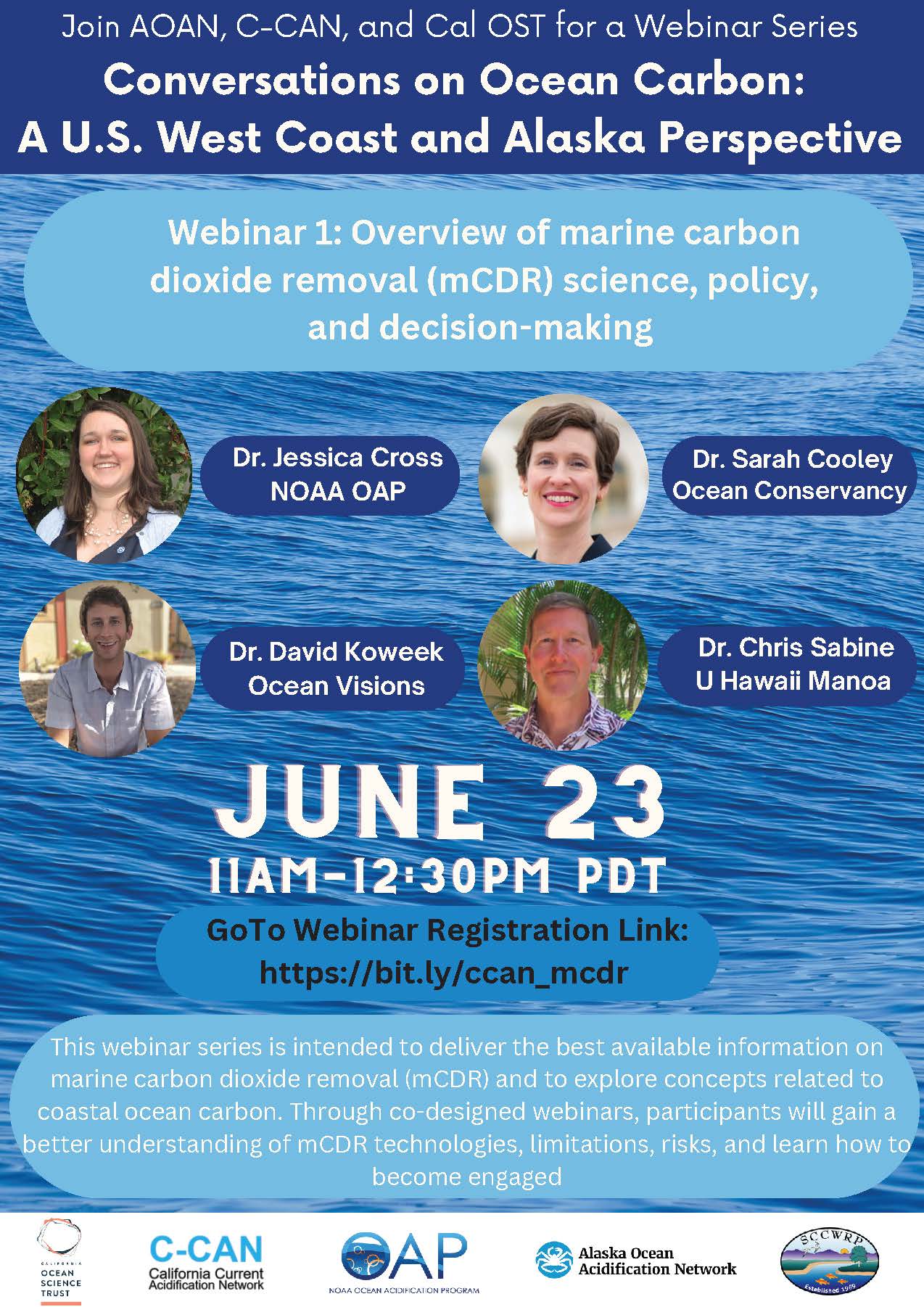
The California Current Acidification Network (C-CAN) is teaming up with the California Ocean Science Trust and the Alaska Ocean Acidification Network to deliver the latest information on mCDR research, policy, and societal implications. Through this series of co-designed webinars, participants will gain a better understanding of mCDR technologies and approaches, issues and areas for concern, and learn how to engage.
Webinar 1: Overview of marine carbon dioxide removal (mCDR) science, policy,and decision-making
Date/time: Friday, June 23 at 11am-12:30pm PDT
Panelists:
- Dr. Jessica Cross, NOAA OAP/PMEL
- Dr. Sarah Cooley, The Ocean Conservancy
- Dr. David Koweek, Ocean Visions
- Dr. Chris Sabine, University of Hawaii, Manoa
Register HERE!! https://bit.ly/ccan_mcdr
Background: Marine carbon dioxide removal (mCDR) is being considered as a potential solution to global climate change. However, mCDR poses unknown, potentially serious risks to the marine environment and the communities that depend on those systems. Stakeholders who depend on marine resources, alongside governments that will set policy, regulation, and evaluation schemes, must be included in the decision-making process to ensure mCDR observing capability is responsive and comprehensive. This is particularly true for traditionally excluded groups, including indigenous and other local communities, who must be considered at every stage of the development process.
About the series: The California Current Acidification Network (C-CAN) webinar series is intended to create a direct dialogue among industry members, tribes, natural resource managers and scientists within the California Current Ecosystem. With awareness of, and access to, the research and its applications and uses, participants will be able to collaborate to better understand and adapt to ocean acidification moving forward.
Past C-CAN webinars: https://c-can.info/workshopswebinars/
About C-CAN: The California Current Acidification Network (C-CAN) provides an ongoing regional forum for the synthesis and distribution of the latest scientist, stakeholder, and participant observations and needs. Established in 2009, C-CAN enhances regional collaborations and communications related to ocean acidification and marine carbon related topics about the current state of the science, approaches to monitoring, and vulnerable species and ecosystems among other concerns.
About Cal OST: The California Ocean Science Trust (OST) is a nonprofit dedicated to convening science expertise to accelerate progress towards a healthy, equitable and productive coast and ocean. We were created by the California Legislature in 2000 to bridge the gap between science from our universities and institutions, and sound ocean policy and management. We work on priority issues in California where bringing people together around a science-based conversation can help find a path forward where none currently exist, and offer spaces for dialogue removed from jurisdictional boundaries.
